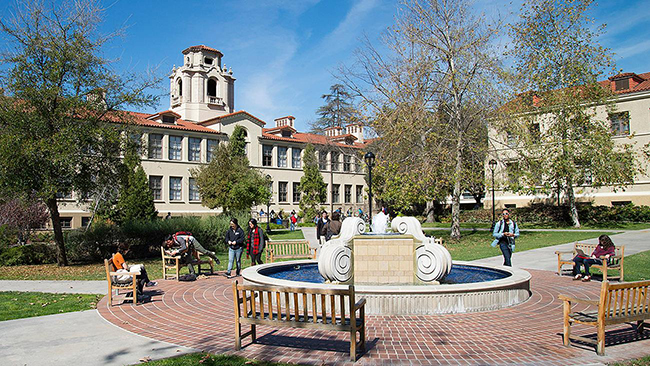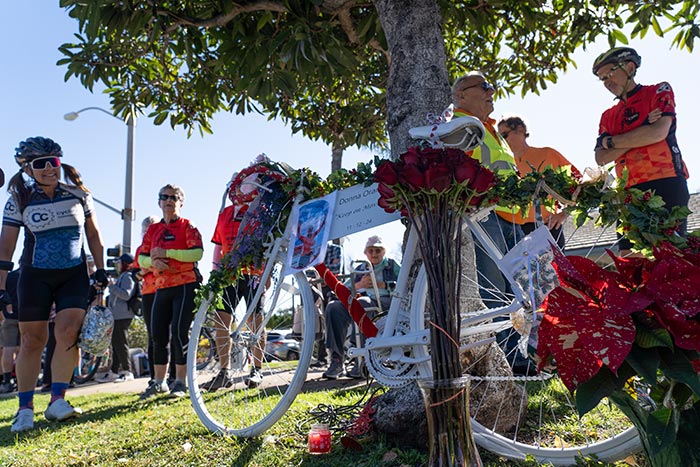Affordable housing project to be built on Base Line Road
by Rebecca Norden-Bright | intern@claremont-courier.com
For the first time in more than eight years, Claremont will see the construction of a new affordable housing development for the city’s most vulnerable residents.
On Tuesday, the city council voted unanimously to approve city funding for the construction of a 15-unit project, located at 956 W. Base Line Rd. between Towne and Mountain Avenues in Claremont, that will provide housing for low-income and homeless seniors.
This project—pursued in collaboration with Restore Neighborhoods LA (RNLA), Tri-City Mental Health and Genesis LA Economic Growth Corporation—was largely the work of Councilmember Jed Leano, who has spent the past year bringing together various funding sources for its development.
Mr. Leano ran for the council in 2018 on a platform of increasing affordable housing in Claremont.
“[Affordable housing] is the biggest challenge of our generation,” said Mr. Leano during Tuesday’s meeting. “We’re not done dealing with it. But this is a huge step in addressing the problem head on.”
The site, located at 956 Base Line Rd., consists of a single-family four-bedroom home located on nearly 0.75 acres. It is currently owned by Tri-City, which has been attempting to use the remainder of the plot for affordable housing since purchasing the plot but has been unable to secure the necessary funding or local support for the project.
Tri-City plans to donate the land to RNLA, who will develop, own and manage the project. The proposed development would transform the house into a common space and construct 15 one-bedroom units around a central landscaped courtyard, as well as six parking spaces for the residents’ use.
Eight of the units will be reserved for Tri-City clients, but all residents will have access to Tri-City services, including essential transportation and mental health and substance abuse support.
The eight Tri-City units are classified as extremely low income (ELI) housing, and residents in these units will be responsible for paying approximately $270 per month in rent, according to Jamie Earl, the assistant to the city manager. ELI households are defined as having an income at or below 30 percent of the area median income (AMI).
Because the rents are so low, Tri-City will provide an operating subsidy for these units. Rents for the remaining seven units are “anticipated to range from $900 to $1,400 per month, and serve households around 50 percent to 80 percent of AMI,” according to the city report.
The site is already zoned as medium-density residential, so the project is considered by right for development and does not require any further approval from the city.
The resolution adopted by the council Tuesday provided the final step necessary to securing funding for the project. The development is financed by multiple sources, including LA County, the San Gabriel Valley Housing Trust, Tri-City and now the city of Claremont.
Mr. Leano also cited the passage of Senate Bill 751 in October 2019 as instrumental in obtaining adequate capital. SB 751, introduced by Senator Susan Rubio, authorized the creation of the San Gabriel Valley Housing Trust, which pools funding from both public and private sources to construct affordable housing.
RNLA, the developer, and Genesis LA, the financier, both work to develop small affordable housing sites that blend well visually with the surrounding community. After meeting with both organizations last summer, Mr. Leano and Director of Human Services Anne Turner worked together to make a list of possible funding sources and began reaching out to them for support.
Last July, Supervisor Hilda Solis helped to secure $750,000 in funding from the county. In January of this year, Tri-City approved $1.14 million for the project. And on July 15 of this year, the San Gabriel Valley Housing Trust earmarked $500,000 from the California Department of Housing and Community Development (HCD).
The approval by the city council on Tuesday allocates $1.75 million for the project from the City’s Successor Housing Fund, which has a current balance of $3.5 million and which, by law, can only be used for the construction of housing.
“If this project shows us anything, it’s that leveraging and cooperation with other regional agencies and other elected officials is the only way we’re going to get affordable housing done,” said Mr. Leano in an interview with the COURIER. “We just don’t have enough capital ourselves to finance all of it, so we’ve got to work with all of our partners in the region.”
At Tuesday’s meeting, community members overwhelmingly expressed their support for the development, and thanked the council for beginning to address Claremont’s urgent housing and homelessness crisis.
Rachel Forester, who sits on the board of Inclusive Claremont, an affordable housing coalition, stressed the importance of continuing to build low and very low income housing.
“Offering more affordable housing is the most effective way to combat our region’s homelessness crisis,” said Ms. Forester. “Communities thrive when people are given opportunities to access an affordable home. Claremont’s inclusionary housing ordinance has been successful at meeting our moderate income housing goals but thus far has yielded no low income housing. Approving the funding for this project will show that Claremont is truly committed to meeting our legal and moral obligations to providing inclusive, affordable housing.”
The last affordable housing development built in Claremont was Courier Place, constructed in 2011. Since then, the housing crisis has only worsened. The 2020 Greater Los Angeles Homeless Count revealed a 12.7 percent increase in the number of individuals experiencing homelessness from the previous year, as well as a 20 percent increase in homelessness among seniors aged 62 and older.
Members of the public noted their approval of this project as a step in the right direction, but also reminded the Council that the construction of more affordable housing in Claremont must continue.
“It’s one step,” said Claremont Change co-founder Josue Barnes. “We do need to look into further expansion of affordable housing because it doesn’t stop just here. We need to consider future low income developments for those who are not seniors but are currently unsheltered or in need of a home, or possibly need mental health services.”
Going forward, the project will undergo a design review by the Architectural Commission and will be open for public hearing by neighbors in the surrounding area. Construction is slated to begin on or before July 15, 2021.










0 Comments